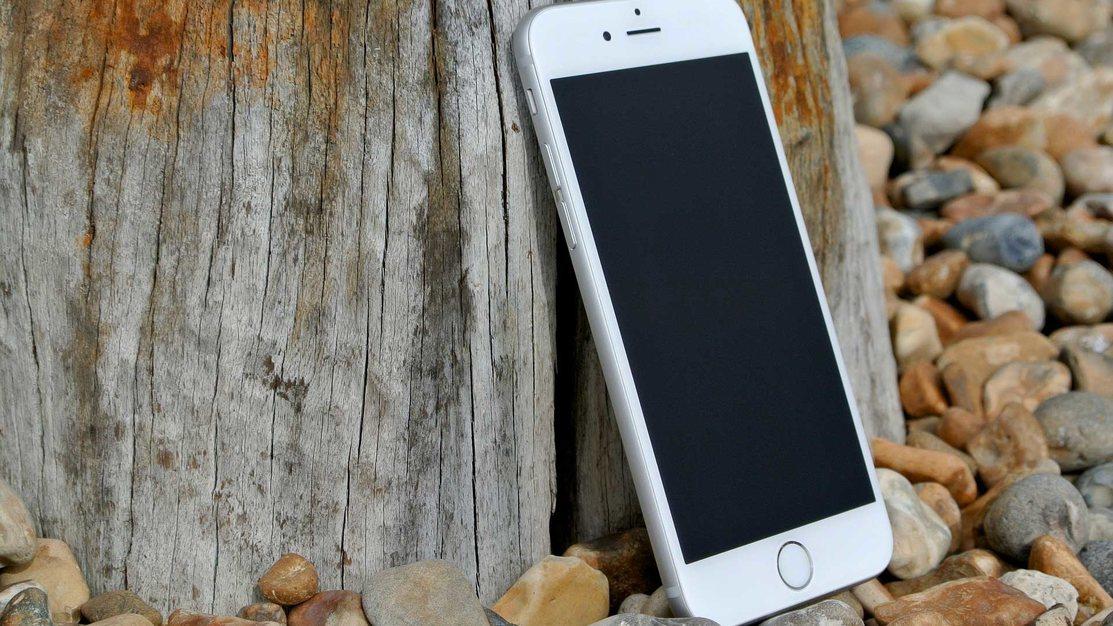
It wasn't nice anymore. Although what is actually nice about a smartphone. Only what's inside is beautiful. pictures for example. But the thing itself? A thin box, in this case with dents and scratches, the back wall splintered and yes no longer the latest model. Recently, it was even rejected by the company's own software.
This all sounds a bit derogatory, but maybe it's the same with things as with people: if they leave you, you downplay them. Because of course you would have preferred to keep the thing. Maybe another year or two? But, all idle, the smartphone is gone. Disappeared on a plane, in the distance somewhere between row 15 and the exit. Because you didn't pay enough attention to it yourself, because someone obviously needed one... In any case, nobody handed it over.
"Hello, I'm back." - "Hello back. Tell me, how was it?” – “Great, my phone stayed the same.” – “Like, you mean you lost your phone?”
Lost, leave? 44 percent of mobile phone users can tell about this
According to a survey by the digital association Bitkom, around 44 percent of all mobile phone users in Germany have lost their device at least once or left it lying around. In the survey, 15 percent said their smartphone had been stolen. 79 percent reported involuntary self-destruction. That's also why, to say something positive now, the loss of a cell phone is great as a story. So much expert knowledge, so much sympathy, you feel understood.
The first query is almost always: "Yes, couldn't you locate it?" - "No." - "But you can now?" - "Yes, but you have to turn on the appropriate function for that." - "You did Don't you?” – “No.” – “Have you called them?” – “Yes, but no one answers.” – Third question then usually: “Did you have a backup?” – “Hmm, well , not a very recent…”
Also readThe classic: The toilet story
This is the rather uncomfortable part of the conversation, because you reveal a certain careless sloppiness in dealing with things, a certain disinterest in everything developers do in Silicon Valley or wherever, so that such a smartphone doesn't get completely lost. At least the content particles live on in the backup on the computer or in a cloud. But once you've gotten through this part of the conversation, it becomes entertaining, even for yourself: you can then listen. And cellphone stories are like hunting stories—get better the more you tell them.
You can divide the stories into categories, a bit like literature, although it's often a mixture: thriller, drama, comedy, a bit of everything. But the classic is apparently the toilet story! The plot in three sentences: Cell phone in the back pocket. pants pulled down. thump L. says she knows someone to whom this has happened about eight times, B. tells his wife once so far, unfortunately on the train... B. will also tell about the hapless handyman, but more on that later, for now: that Drama.
Smartphone: It's my whole life
What would a person be without a phone? A poor bitch. But what is he with the phone? A poor bitch. Kurt Tucholsky wrote that once, a long time ago. But true more than ever. According to a study by the Technical University of Vienna, smartphone users activate their cell phones around 83 times a day – every 13 minutes unless they are asleep. So somehow you're always a poor bitch, with or without a smartphone. But without one you are definitely one without telephone numbers. 017 blablabla, who still remembers them? Two, three, four maybe, but then? But the numbers are the least. In the film "God of Carnage" based on the play by Yasmina Reza, Christoph Waltz, the lawyer who is always on the phone, says after his wife has dropped her cell phone in the flower vase: "My whole life is in it." Black comedy, of course...

On the phone now Christian Montag, Professor of Molecular Psychology in Ulm, who is researching mobile phone use and how social media bind us to the thing. By the way, before the phone call, you quickly did a self-test on the subject of cell phone addiction on the Internet. One question is: "People around me tell me that I use my smartphone too often." "I tend to disagree." Another: "I think about my smartphone all the time, even when I'm not using it." Difficult to answer if you don't have one. In any case, the test result is unobjectionable.
No smartphone also means: no vaccination card - that's where it gets complicated
so Christian Montag you can now tell that in the first few days you sometimes unconsciously reached into the void - as if the cell phone was still in Range - and then every time a short shock, a stab. So is this still normal? He then laughs nicely and says: "Phantom pain." Incidentally, cell phone addiction is not officially recognized as a disease and is also a somewhat incorrect term: "We don't talk about bottle addicts when it comes to alcoholics, the content is central." He is currently working together with colleagues in Lübeck on the SCAVIS study: With the help of the developed Smart@Net app, anyone can anonymously check their own internet use - and whether it is already problematic.
What you could expect now: That Christian Montag really pulls off the leather, demons the thing, as the saying goes. But he doesn't. "Years ago I compared the smartphone with a Swiss all-purpose knife, only that the knife can do less." A smartphone is not good per se, but it's not bad either. It's just a device without which it becomes difficult in everyday life.
"For example, you can't leave the house without a smartphone at the moment because you can't even get into certain shops without the Covid passport." He therefore also finds discussions about cell phone fasting difficult. "We're talking about adults now and without a smartphone, we very quickly reach our limits, also professionally." At this point you have to tell the professor a little about your own experiences: no more bank transfers possible, no WhatsApp, cut off from everyone, Luckily I had the yellow vaccination card with me ... But okay, back to the topic.
Wherever mobile phones end up: in the paint bucket, in the dough
Although: perhaps to loosen things up, here is the story of the do-it-yourselfer, told by B. It goes like this: The friend wanted to rebuild his own four walls paint, everything masked off of course, so that nothing happens. Then: As he bent over the bucket of paint, the mobile phone fell out of his shirt pocket, straight into the slob of paint. And - the climax of the story - hardly sunk in the sloppy white, it began to ring, humming out of the bucket. The story by D. also fits in with this: She once sunk a mobile phone in the bowl of dough. The dough afterwards still tip top.
Dough is a good keyword because Christian Montag is now talking about snacks between meals. Push notifications, WhatsApp messages, likes... Small bites that the tech platforms feed you with, for example, so that you can return to Facebook and Co, stomp around digitally for as long as possible, leaving footprints that are then measured for tailor-made advertising become. From the point of view of the tech industry, this is the only way to make money at the moment, so they grab you with the archaic basic need: always know what the group is doing. "The data business has meant that we give away every free minute to the corporations," says Montag. "As soon as we anticipate boredom, we reach for the device." So keep nibbling. No cell phone though, no chocolate!
Have a little story? A. tells how her mobile phone once fell straight from the fourth floor into the glass container in Vienna. scrap of course. The paper container would have stood next to it...
Nomophobia - the fear of being without a mobile phone
The British have come up with a term for the fear of being without a mobile phone, "nomophobia", made up of "no mobile phone" and "phobia". There are people who are so afraid that they always carry a second smartphone with them. Just like cowboys always have a second gun. If you do a little research on the subject of nomophobia, you will come across bizarre polls. The market research company Onepool once asked what people would trade in their smartphones for. 44 of the German respondents reportedly said they would rather give up one of their kidneys than their cell phone.
"For heaven's sake, the photos are all gone now, aren't they?"
By the way, no one who was told about the mishap asked whether one would have been afraid without a cell phone. But many according to the photos. "For heaven's sake, they're all gone now, aren't they?"
Oh, the pictures. One that will be missed: that of two young people in front of the packed Arc de Triomphe. Nothing special - just for yourself. The silver arch glittered in the rain, the puddles too and the two young people always glittered for you anyway. At this point in the conversation you often hear the sentence: "That's right, I should now do a backup again..."
A quick and crazy story that you read: In Nepal, a man lost a mobile phone. At home he bought a new one. But he stayed in touch with his old one via the location function and has been following what's up with it ever since. At some point it was like this: If the new owner wasn’t online for a long time, he started to worry...
What is the stranger doing with the device?
What is the stranger doing with the device? Would you really like to know. Is someone looking at your whole life now? Maybe you cook according to the recipes you photographed? Or did he simply erase the life in it?
"But you already had it blocked right away?" - "Sure."
Incidentally, people very often lose their mobile phone when travelling, on the plane, taxi or train. Although, it is also clear: If you stay at home, you will eventually find it under the sofa cushion. If it breaks, according to statistics, either a hard surface or water usually plays a role. Although there are unbelievable cases: A.'s husband also washed his smartphone in the washing machine, 60 degrees, 2.5 hours, after that it was fine.
But now you have a new one. And because you shouldn't go out of a misery without learning from it: at least it's no longer next to the bed. A professor advised Monday, along with a few others, because otherwise you might look at it longer in the evening. Not good for sleep. The device is still flawless, nice somehow.







